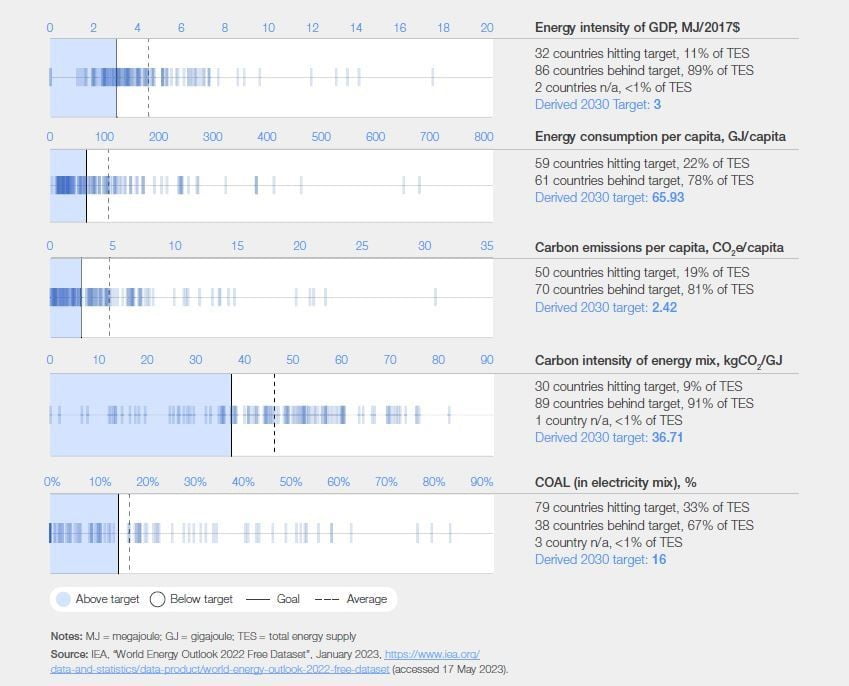Financing the Energy Transition
The experience of recent years has underlined how crucial a secure, affordable and sustainable energy system is to growth in our economies and to equity in our societies. Only with growth and with affordable and reliable energy, will the transition to a green economy be orderly and just. For proof, look at the impact that rising energy prices have had on stoking inflation, which has hit low-income families and small and medium enterprises hardest. This underscores the need for the green energy transition, something that the World Economic Forum (WEF) is a strong supporter of. The question we need to answer is: how do we get energy that is low carbon, affordable and reliable and underpin the growth needed to finance this transition?
In this spirit, the WEF’s International Business Council has launched a project to harness its members’ combined economic impact – 130 companies representing roughly 3% of global energy demand – to accelerate the energy transition. We view this project as a challenge requiring collaborative action across sectors, industries and borders, and an opportunity to foster growth and to influence the way our economies and societies can provide safer, fairer and more sustainable outcomes.
Have you read?
Energy Transition Index: shifting focus on emerging and developing Asia
Much of the focus has, understandably, been on the supply of energy. Arguably, not enough focus has been given to energy demand. According to the International Energy Agency’s (IEA) report on Net Zero by 2050 Pathway, to meet the Paris Accords emissions goals by 2050, the world needs to consume 8% less energy than we do today, but at the same time provide for 2 billion more people. Added to this, our economies will need to grow in a sustainable manner to provide for the growing population. This means that energy consumption as a portion of economic output will have to decline – that is, we will have to be smarter and more efficient in our energy use. And, to meet our net-zero emission targets, the carbon intensity of the energy we do consume will also have to decline.

So, IBC members have decided to start a new project to focus on the demand side of the energy transition. Managing and reducing the energy intensity of demand is an area where we as companies, as leaders in our sectors and as stakeholders in our home countries, can foster more efficient use of energy and promote policies and practices that can lead to success. We aim to do this in a way that complements, rather than duplicates, other similar initiatives, within and outside of the World Economic Forum’s ecosystem.
Supporting emerging and developing countries
As a first step, supported by our knowledge partner, PwC, the IBC will create a common vision for demand-side energy transition, with an eye towards reducing energy consumption as a portion of GDP and reducing carbon intensity within that equation. A key part of this will be how we support emerging and developing countries to do this. It is imperative that emerging economies grow, lifting people out of poverty while transitioning to a green future. As part of this phase, we will survey IBC members to help identify best practices, priorities and existing plans and targets – as well as obstacles – which we will use as a baseline for action.
In the second stage, once our common vision is defined and measures identified, we will engage governments and multilateral to advocate for the policies needed to remove obstacles and promote the demand-side energy transition. We will explore the opportunities to contribute to sectoral transition frameworks as well.
We will coordinate closely with other energy and climate initiatives, within and outside of the World Economic Forum’s ecosystem, to align our priorities and messages and ensure maximum impact in our advocacy.
IBC members are uniquely placed to help accelerate the energy transition by catalysing company, sector and country-level action. The community has an opportunity to leverage its collective influence and convening power to accelerate a low-carbon, secure and just transition of the global energy system by bringing together the private sector, governments and international organizations.
IBC members, who are global leaders in their respective industries and regions, can make an enormous impact by creating and implementing actions across their companies, sectors and the countries in which they operate. We know the limits of a one-size-fits-all approach, but we are also convinced that we can share solutions and efficiencies that can be adapted to have an impact.
Role of SMEs in Energy Transition
We will not forget the importance of SMEs and developing countries, seeking ways they can be supported and incentivised in the energy transition. We will, for example, seek ways to unlock equity financing for the energy transition. All IBC members are affected by the energy transition and they are relevant in influencing it as energy consumers and, in many cases, as producers.
Banks have a role to play too. Financing the energy transition is, and will continue to be, one of the major challenges – and opportunities – for financial institutions. This is especially true in Europe, where 70% of business finance comes from banks.
The task is daunting, but the goal is attainable if we work together. Through collaboration within the business community, between the public and private sectors and among the relevant global bodies, we can build an energy system that is low carbon, affordable and reliable.
Source: World Economic Forum

